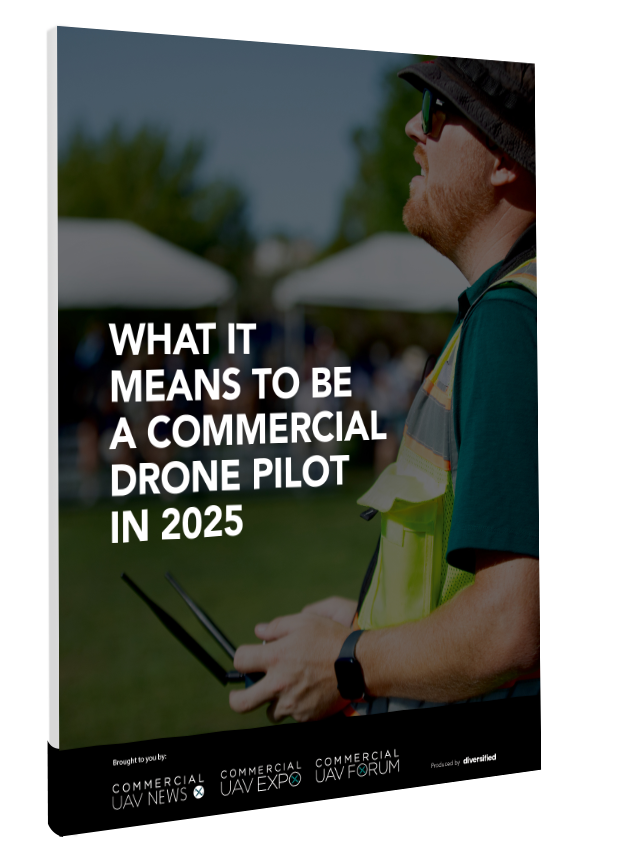With more than 300 million USD invested since 2012, drone deliveries will become the fastest-growing application method within the drone market, according to DRONEII’s 2019 Drone Delivery report.
By using drones to deliver blood donations, vaccinations, medications, anti-venom solutions, organ transplants, and other medical supplies, the medical segment of drone delivery is gaining quite a bit of traction. Between drone service providers and business-internal services, there are more than 30 companies using drones to deliver medical supplies.
Here is a breakdown of a few of the medical delivery services already making a difference in healthcare.
A New Matternet Station
Integrated with Matternet’s autonomous M2 Drone and Cloud Platform, the new Matternet station supports the company’s vision of distributed, peer-to-peer drone logistics networks for urban environments, allowing hospitals and their supply partners to integrate automated drone delivery laboratories and pharmacy operations.
By replacing slow and expensive on-demand courier services, hospitals can move blood diagnostics, pathology specimens and medicine between their facilities, and suppliers with secure, extremely fast and predictable aerial delivery. For now, Matternet is only using these stations as healthcare systems in Switzerland and the US.
“Our vision is to connect every healthcare facility in every metropolitan area with the fastest transportation method available today,” said Andreas Raptopoulos, CEO of Matternet. “We are building the technology platform for extremely fast, point-to-point, urban medical delivery, enabling hospital systems to shrink patient waiting times and save millions of dollars per year through the centralization of laboratories and medical inventory. The Matternet Station is a very important part of the ecosystem for making this vision a reality.”
Last year, Matternet’s M2 Drone enabled UPS to become the first FAA-approved drone airline, allowing both companies to rapidly scale drone delivery hospital operations in the U.S.
UPS and Henry Schein Partnership to Test Medical-Supply Drone Deliveries
Earlier this year, Henry Schein, an American distributor of health care products and services, partnered with UPS to develop new models to transport medical supplies.
Under the oversight of the FAA, UPS Flight Forward and Henry Schein will explore methods to test final-mile delivery where traditional road transport may be less effective or timely, including health campuses, remote communities, or temporarily inaccessible areas due to natural disasters.
“Healthcare and life science logistics are strategic priorities for UPS, and the testing of this drone program is a testament to the value organizations are seeing in this dynamic technology,” said Scott Price, UPS chief strategy and transformation officer.
UC San Diego Health New Drone Project to Transport Medical Supplies
To enhance efficacy, reliability, and predictability of delivering medical products between hospitals and laboratories, UC San Diego Health launched a pilot project to test the use of UAV between Jacobs Medical Center, Moores Cancer Center and the Center for Advanced Laboratory Medicine (CALM).
“Right now, most biological samples must travel between sites by courier car within designated hours,” said James Killeen, MD, clinical professor of emergency medicine and director of information technology services at UC San Diego School of Medicine. “That leaves the system vulnerable to the vagaries of road congestion, accidents, construction and more. Travel time can be slow and unpredictable. A drone can fly over such obstacles in a much more direct way and take just a few minutes to cover the same distance.”
Together with UPS and Matternet, UC San Diego Health’s project will see drones following predetermined, low-risk flight paths within visual line of sight, under the FAA’s Part 107 rules, with no cameras and monitored by remote operators.
Reducing Patient Travel with Drones
As part of the UK’s “Future of Transport” regulatory review, the UK government unveiled a £90m funding package to enable medicine delivery by drone across three areas – Portsmouth and Southampton; Derby and Nottingham; and the West of England. In the Portsmouth and Southampton area, the UK government is looking at the use of drones to move medical supplies between the Isle of Wight and the mainland to help cut time spent journeying on ferries and road and help speed up diagnoses.
As an Island, the Isle of Wight relies on mainland hospitals for specialist treatment. For example, patients from the Isle of Wight currently have to travel by ferry to Southampton General Hospital for chemotherapy treatment on a regular basis. With drones, chemotherapy kits could be flown from Southampton to recognized locations where they would be taken to the patient’s home and administered by local medical staff. In addition, drones could also be used to transport urgent blood and organs.
“This is great news for the Island. It’s a chance to transform the way we transport medical supplies to and from the Island,” said Bob Seely MP for the Isle of Wight. “We need to think about the way we use technology in the future to reduce patient travel and ensure more treatment is available closer to home.”
Drone Delivery of an Automated External Defibrillator
Flirtey, a company that performed the first legal delivery in the US back in 2015, and an FAA’s UAS Integration Pilot Program (IPP) participant, has been using drones to deliver Automated External Defibrillators (AED) since 2017.
In 2019, the City of Reno, which is also part of the FAA’s IPP, partnered with Flirtey, the FAA, and its local IPP partners to enable drone delivery of AEDs to Washoe County residents for the immediate treatment of a person experiencing cardiac arrest, and to pioneer a scalable model for commercial drone delivery. Flirtey also received approval from the FAA to conduct BVLOS operations making it easier to conduct drone delivery operations with a pilot controlling the flights from a remote location.
According to the City of Reno, “one Flirtey delivery drone carrying an AED has the potential to save at least one life every two weeks in Reno. Deployed nationwide, Flirtey's AED drone delivery service has the potential to save more than 100,000 lives per year and more than 1 million American lives over each decade to come.”
From Africa to the US
Based in California, Zipline, a supplier of critical and lifesaving products across multiple countries, launched its business in Rwanda in 2016, primarily delivering blood, but also platelets, frozen plasma, and cryoprecipitate. In April 2019, Zipline began to use drones in Ghana to deliver vaccines, blood, and medicines. As of May 2019, more than 65% of blood deliveries in Rwanda, outside of the capital Kigali, used Zipline drones.
Also last year, the company received a large drone investment of $190M, raising the company’s valuation to over $1B. With this investment, the company expects to serve 700 million people within the next four years by expanding its medical supply delivery services across the world, starting with the US and India.
“There is a growing feeling around the world that technology is not benefitting the vast majority of people,” said Zipline CEO Keller Rinaudo. “The old conventional wisdom has been that building a successful technology company requires exploiting people’s personal information or hijacking their attention. Zipline wants to establish a new model for success in Silicon Valley by showing the world that the right technology company with the right mission and the best team can help improve the lives of every person on the planet.”
















Comments